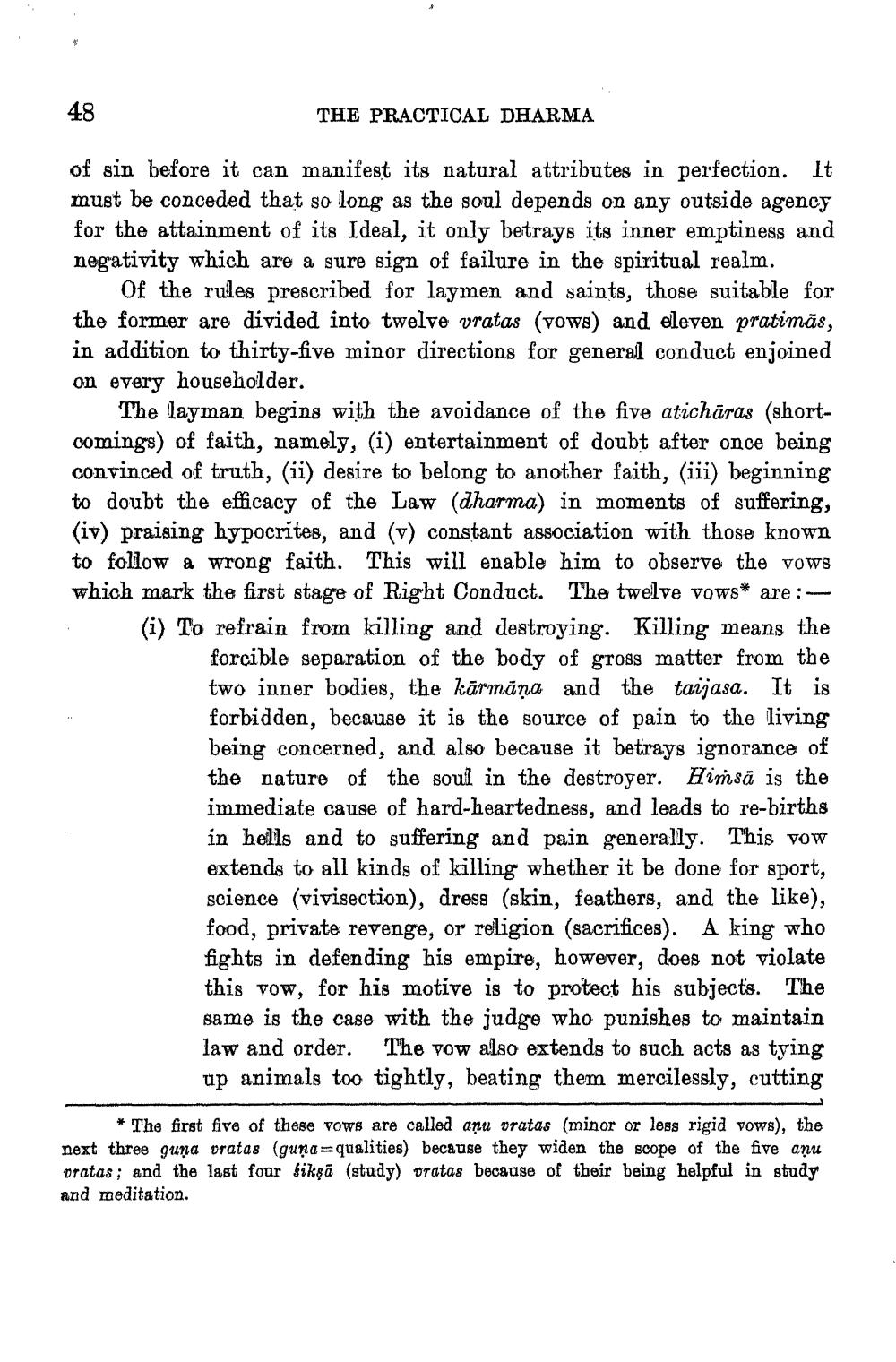________________
THE PRACTICAL DHARMA
of sin before it can manifest its natural attributes in perfection. It must be conceded that so long as the soul depends on any outside agency for the attainment of its Ideal, it only betrays its inner emptiness and negativity which are a sure sign of failure in the spiritual realm.
Of the rules prescribed for laymen and saints, those suitable for the former are divided into twelve vratas (vows) and eleven pratimas, in addition to thirty-five minor directions for general conduct enjoined on every householder.
The layman begins with the avoidance of the five atichāras (shortcomings) of faith, namely, (i) entertainment of doubt after once being convinced of truth, (ii) desire to belong to another faith, (iii) beginning to doubt the efficacy of the Law (dharma) in moments of suffering, (iv) praising hypocrites, and (v) constant association with those known to follow a wrong faith. This will enable him to observe the vows which mark the first stage of Right Conduct. The twelve vows* are:(i) To refrain from killing and destroying. Killing means the
forcible separation of the body of gross matter from the two inner bodies, the kārmāna and the taijasa. It is forbidden, because it is the source of pain to the living being concerned, and also because it betrays ignorance of the nature of the soul in the destroyer. Himsā is the immediate cause of hard-heartedness, and leads to re-births in hells and to suffering and pain generally. This vow extends to all kinds of killing whether it be done for sport, science (vivisection), dress (skin, feathers, and the like), food, private revenge, or religion (sacrifices). A king who fights in defending his empire, however, does not violate this vow, for his motive is to protect his subjects. The same is the case with the judge who punishes to maintain law and order. The vow also extends to such acts as tying up animals too tightly, beating them mercilessly, cutting
* The first five of these vows are called aņu oratas (minor or less rigid vows), the next three guna uratas (guna=qualities) because they widen the scope of the five anu pratas; and the last four sikşā (study) oratas because of their being helpful in study and meditation.




